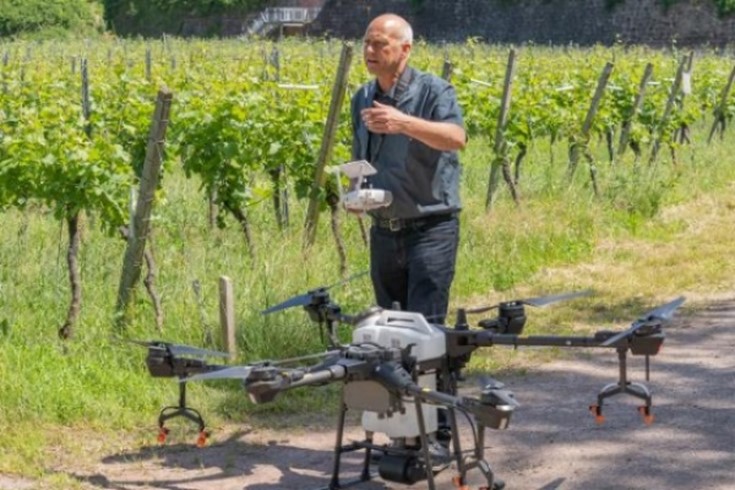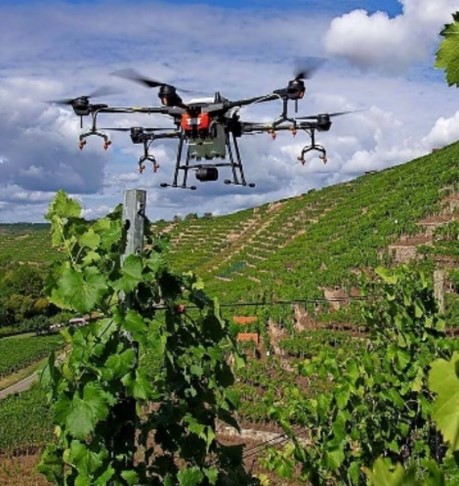

Regional winemakers face challenges such as structural changes, succession and skilled worker issues, climate change impacts, reduced spray consumption, uneconomical steep slopes, and fallow vineyards. In response, the "Weinbau 4.0" flagship project aims to support small-scale vineyards, addressing these challenges and ensuring the attractiveness of winemaking for the next decades. Led by the Economic Development Agency of the Emmendingen district, the project was recognized by Minister Peter Hauk on April 14, 2021, as a flagship initiative in the RegioWIN 2030 competition. With a total cost of around 5 million euros, the project receives approximately 3 million euros in funding from the state of Baden-Württemberg and the European Regional Development Fund (ERDF).
To address the challenge of high investment costs in innovative technologies for small wine-growing businesses, plans include the development of innovation clusters for automation (tractors, robotics) and drones. Additionally, studies will be conducted on the development and implementation of dual-use photovoltaic systems in the vineyard (Viti-PV).


Images: Supporting drones operated at the wine growing facilities (© Ulrich Spitzmüller, Emmendingen)
Simultaneously, the flagship project is establishing the "Viticulture 4.0" Competence Center in Emmendingen, hosted by the Economic Development Agency (WFG). The primary objectives are to enhance regional collaboration, sustain winemaking traditions, preserve the cultural landscape, and foster knowledge transfer, user-oriented research, development, and innovation.
The Competence Center plays a pivotal role, organizing network meetings for Agri-Photovoltaics, supporting drone and automation innovation clusters, and facilitating technology collaborations. It hosts events that focus on advancements such as the simultaneous use of viticulture and photovoltaic areas (Agri-PV/Viti-PV) and automation/sensor technology.
Furthermore, acting as a regional hub for winemakers, cooperatives, and other wine regions, the Competence Center provides support for education, training, public relations, regional collaboration, and actively encourages cross-border exchange in viticulture with Alsace and other EU projects.
Martin Linser
Email: wfg@landkreis-emmendingen.de
Wirtschaftsförderungsgesellschaft des Landkreises Emmendingen mbH
Website: www.wfg-landkreis-emmendingen.de
Wolfgang Kniejski (INI-Novation GmbH)
Funded by the European Union. Views and opinions expressed are however those of the author(s) only and do not necessarily reflect those of the European Union or the European Education and Culture Executive Agency (EACEA). Neither the European Union nor EACEA can be held responsible for them.
Project number: 2021-1-DE02-KA220-VET-000034651
All AgriSkills Intellectual Outputs are Open Educational Resources.
Creative Commons Attribution-Non-Commercial-Share-Alike 4.0 International License.
Google Play and the Google Play logo are trademarks of Google LLC.